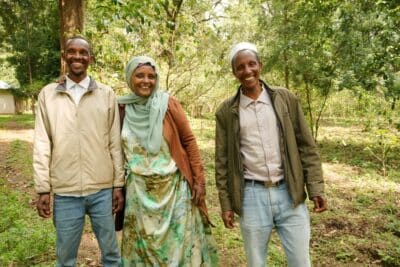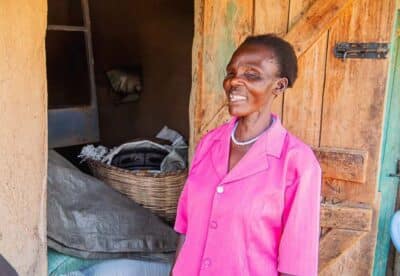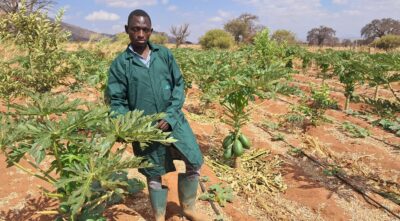News
2 December 2011
Farm Africa showcases carbon project at Durban climate conference
Farm Africa staff have travelled to the Durban climate conference (COP 17) this week to discuss a carbon-emissions reduction project Farm Africa is developing in Ethiopia.
Our Ethiopia Programmes Manager, Tsegaye Tadesse, has travelled to Durban with two other colleagues. They will highlight initiatives aimed at tackling climate change through limiting deforestation. The team has been joined by a senior official from the Ethiopian government, Dr Girma Tesfaye, who is also Director of the Orioma Forest and Wildlife Enterprise, Farm Africa’s partners in Ethiopia.
How is our project helping to tackle climate change?
Our carbon-emissions reduction project is part of an international scheme, “Reducing Emissions from Deforestation and Forest Degradation” (REDD). The REDD scheme is aimed at financially compensating developing countries which reduce their carbon emissions through reducing deforestation.
Limiting deforestation is a key component of reducing carbon emissions, thereby tackling climate change. This is because trees breathe in carbon dioxide and breathe out oxygen, making them one of the most efficient systems for capturing and storing carbon dioxide. Essentially, trees “lock up” carbon dioxide by storing it in their trunks, roots and branches.
How is our project reducing deforestation?
Farm Africa has initiated one of the world’s largest REDD projects over approximately 500,000 hectares of forest in the Bale mountains, home to Africa’s largest Afro-alpine habitat. Our REDD project falls within a larger programme, the Bale Eco-Region Sustainable Management Programme (BERSMP). By developing income-generating activities that don’t involve felling trees, the project is reducing deforestation. This means more trees which are able to “lock up” carbon, reducing damaging emissions of carbon dioxide into the atmosphere.
The project has developed income-generating activities for communities living in Bale’s forests, including coffee-growing, beekeeping and tree nurseries. The project is also promoting to forest communities fuel-efficient stoves. These stoves are proving successful in reducing overall demand for firewood and are another important component of our project’s strategy to reduce deforestation as a means of helping to tackle climate change.
Our Bale Eco-Region Project is run jointly with an Ethiopian NGO, SOS Sahel, and is part of a wider partnership with the Ethiopian government to reduce deforestation.




